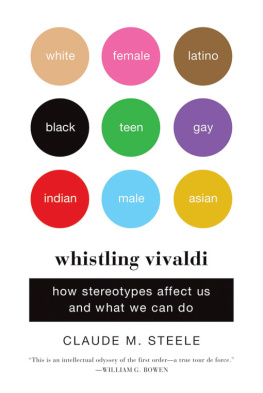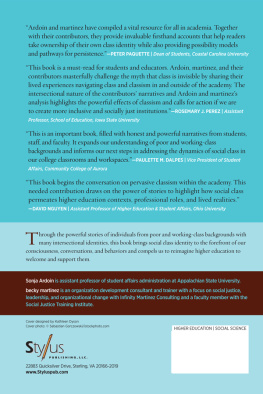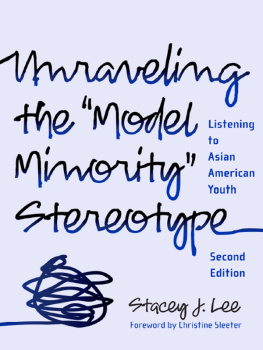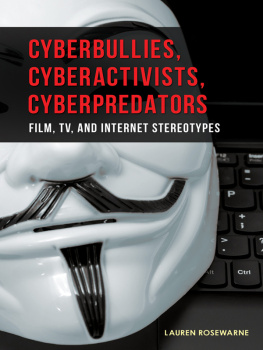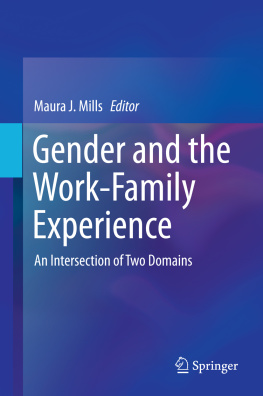Issues of Our Time
O urs has been called an information age, but, though information has never been more plentiful, ideas are what shape and reshape our world. Issues of Our Time is a series of books in which some of todays leading thinkers explore ideas that matter in the new millennium. The authorsincluding the philosopher Kwame Anthony Appiah, the sociologist William Julius Wilson, the social psychologist Claude Steele, the legal scholars Charles Fried and Alan Dershowitz, the Pulitzer Prizewinning critic Louis Menand, and the Nobel Prizewinning economist Amartya Senhonor clarity without shying away from complexity; these books are both genuinely engaged and genuinely engaging. Each recognizes the importance not just of our values but also of the way we resolve the conflicts among those values. Law, justice, identity, morality, and freedom: concepts such as these are at once abstract and utterly close to home. Our understanding of them helps define who we are and who we hope to be; we are made by what we make of them. These are books, accordingly, that invite the reader to reexamine hand-me-down assumptions and to grapple with powerful trends. Whether you are moved to reason together with these authors, or to argue with them, they are sure to leave your views tested, if not changed. The perspectives of the authors in this series are diverse, the voices are distinctive, the issues are vital.

H ENRY L OUIS G ATES J R., SERIES EDITOR W. E. B. D U B OIS P ROFESSOR OF THE H UMANITIES H ARVARD U NIVERSITY
WHISTLING VIVALDI
AND OTHER CLUES TO HOW STEREOTYPES AFFECT US
Claude M. Steele

W. W. NORTON & COMPANY
NEW YORK LONDON
Copyright 2010 by Claude M. Steele
All rights reserved
First Edition
For information about permission to reproduce selections from this book,
write to Permissions, W. W. Norton & Company, Inc.,
500 Fifth Avenue, New York, NY 10110
Library of Congress Cataloging-in-Publication Data
Steele, Claude.
Whistling Vivaldi: and other clues to how stereotypes affect us / Claude M. Steele.1st ed.
p. cm.(Issues of our time)
Includes bibliographical references.
ISBN: 978-0-393-39737-7
1. Stereotypes (Social psychology) 2. Group identity. 3. Discrimination.
I. Title.
HM1096.S736 2010
303.3'85dc22
2009052079
W. W. Norton & Company, Inc.
500 Fifth Avenue, New York, N.Y. 10110
www.wwnorton.com
W. W. Norton & Company Ltd.
Castle House, 75/76 Wells Street, London W1T 3QT
To Dorothy and, in order of their arrival in the clan,
Jory, Ben, Dayna, Sidney, Coleman, and Matthew
And to my parents, Ruth and Shelby Steele
CONTENTS
ACKNOWLEDGMENTS
D espite my protest that psychologists write articles not books, Skip Gates and Roby Harrington persisted in encouraging me to write this book and for that I thank them. I also thank them for the support and patience they showed me during the writing of the bookand for the idea of this book series.
Social psychological research is a collaborative enterprise, and the collaborations at the core of my research provide the narrative structure of this book. Thus many collaborators are described throughout its pages (many of whom were also commentators on sections of this book). But some collaborators whose research did not wind up in the book, but who nonetheless importantly influenced my research and thinking, are Priyanka Carr, Emily Pronin, Daryl Wout, Julie Garcia, and David Sherman.
I also want to extend special thanks to Hazel Markus and to the late Robert Zajonc, whose friendship, support, and constant willingness to engage the ideas of this work and add insight to it made this book far better than it would otherwise have been. Thanks go also to their daughter, Krysia Zajonc, whose forthcoming and honest relaying of her experiences in college contributed importantly to the book. It is also worth noting that scientists are people too, and the support of friends and colleagues like Ewart Thomas, Jennifer Eberhardt, Carol Dweck, Lee Ross, Mark Lepper, Dale Miller, Larry Bobo, Marcy Morgan, and my colleagues at Stanfords Center for the Comparative Study in Race and Ethnicity made this work, again, better than it would have been. Also, Keith Wailoo and Richard Nisbett provided very useful comments on early chapters of the book. I offer these appreciations but stress that none of these good people have any responsibility for the errors or errant judgments that you, the reader, may encounter.
I am also grateful to my editors at W. W. NortonMollie Eisenberg, Jake Schindel, and, again, Roby Harringtonfor their thoughtful, often revealing comments that helped every aspect of this book and that gently pushed and guided me to make it better. Similar thanks go to several people who, as student research assistants, helped me with various aspects of preparing the manuscript: Hilary Bergsieker, Matthew Jackson, and especially April House, who did such a thoughtful job collecting references in the final stages of preparing the manuscript. Special thanks as well to my agent, Tina Bennett, for making the whole process a smooth and enjoyable one.
Research requires the beneficence of funders, and for the beneficence that enabled my own research reported in this book I will always be grateful to the National Institute of Mental Health for several research grants, and especially to the Russell Sage Foundation and its president, Eric Wanner, who early on was willing to take a chance with this research and, by sticking with it, allowed it to develop into a mature contribution.
Finally, I would like to thank my colleagues at the Center for Advanced Study in the Behavioral Sciences at Stanford, who were blessedly tolerant of me neglecting my directors duties long enough to bring this book to a conclusion. Patience is the milk of human kindness, and they are indeed a kind group of friends and colleagues.
Whistling Vivaldi
CHAPTER 1
An Introduction: At the Root of Identity
I have a memory of the first time I realized I was black. It was when, at seven or eight, I was walking home from school with neighborhood kids on the last day of the school yearthe whole summer in front of usand I learned that we black kids couldnt swim at the pool in our area park, except on Wednesday afternoons. And then on those summer Wednesdays, with our swimming suits wrapped tightly in our towels, we filed, caravan-style, out of our neighborhood toward the hallowed pool in the adjoining white neighborhood. It was a strange weekly pilgrimage. It marked the racial order of the time and placeChicagoland, the 1950s and early 1960s. For me it was what the psychologist William Cross calls an encounterwith the very fact that there was a racial order. The implications of this order for my life seemed massivea life of swimming only on Wednesday afternoons? Why? Moreover, it turned out to be a portent of things to come. I next found out that we black kidswho, by the way, lived in my neighborhood and who had been, until these encounters, just kidscouldnt go to the roller rink, except on Thursday nights. We could be regular people but only in the middle of the week? These segregations were hard to ignore. And mistakes were costly, as when, at thirteen, after arriving at six in the morning, I waited all day to be hired as a caddy at an area golf course, only to be told at the end of the day that they didnt hire Negroes. This is how I became aware I was black. I didnt know what being black meant, but I was getting the idea that it was a big deal.

